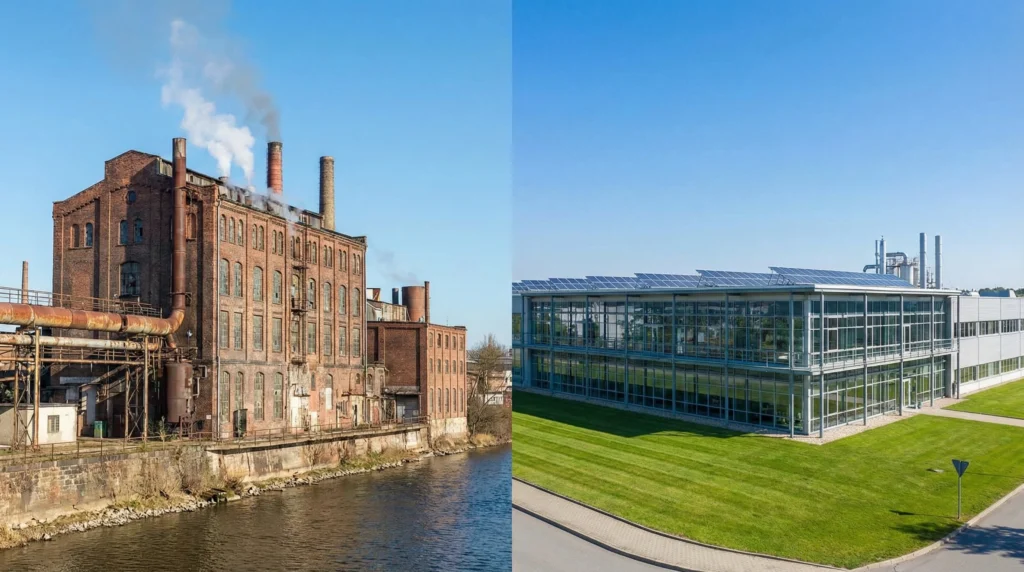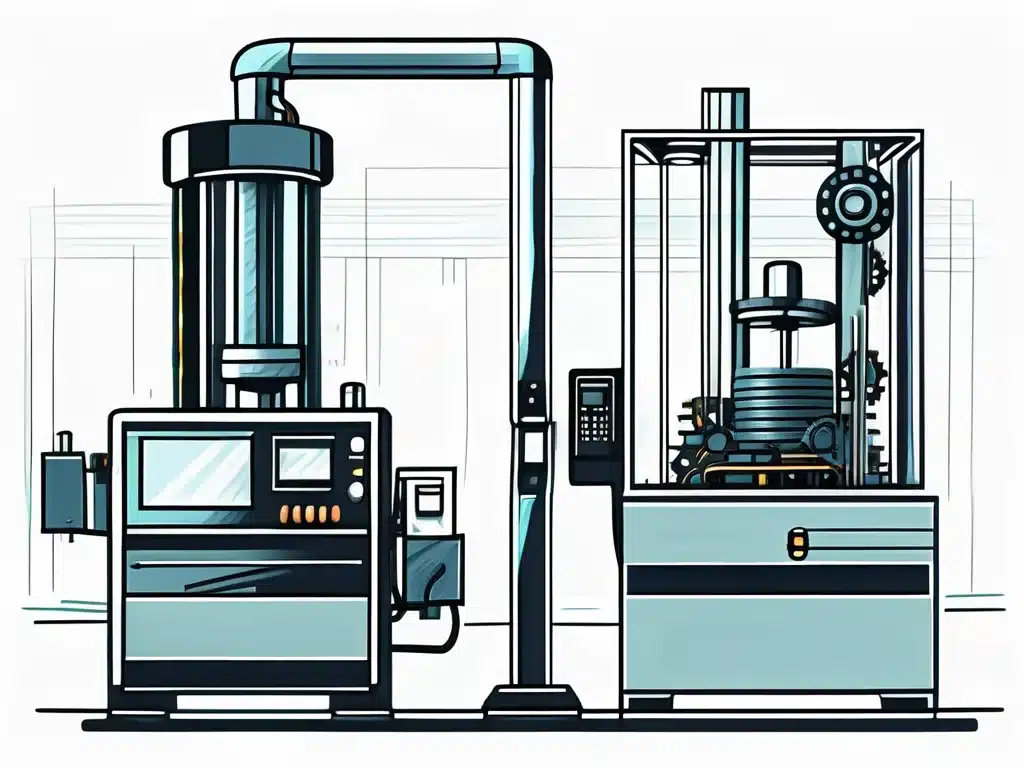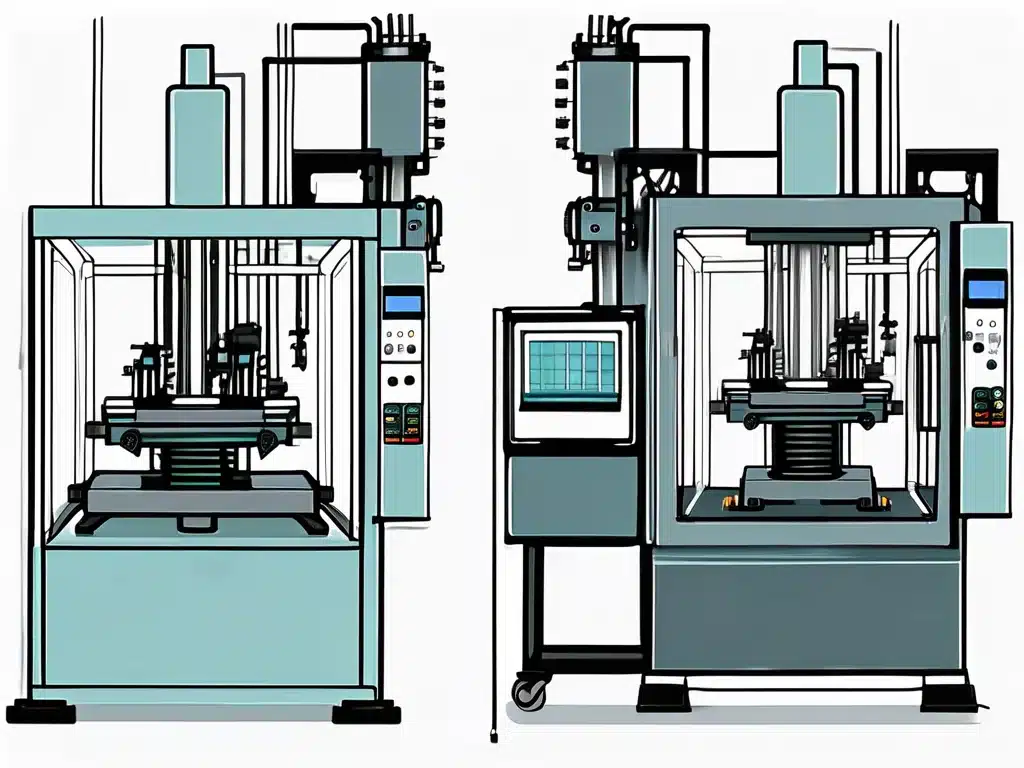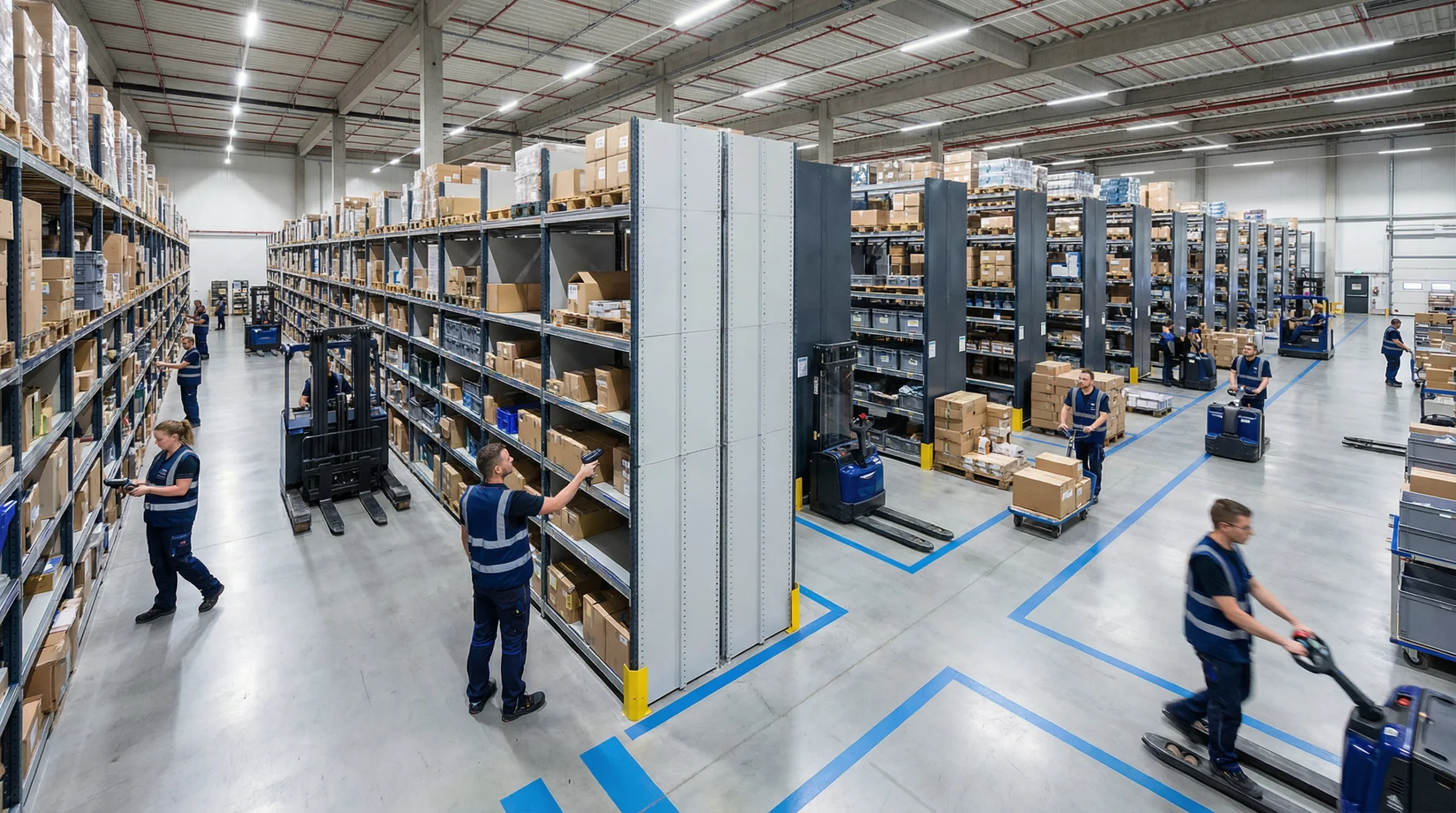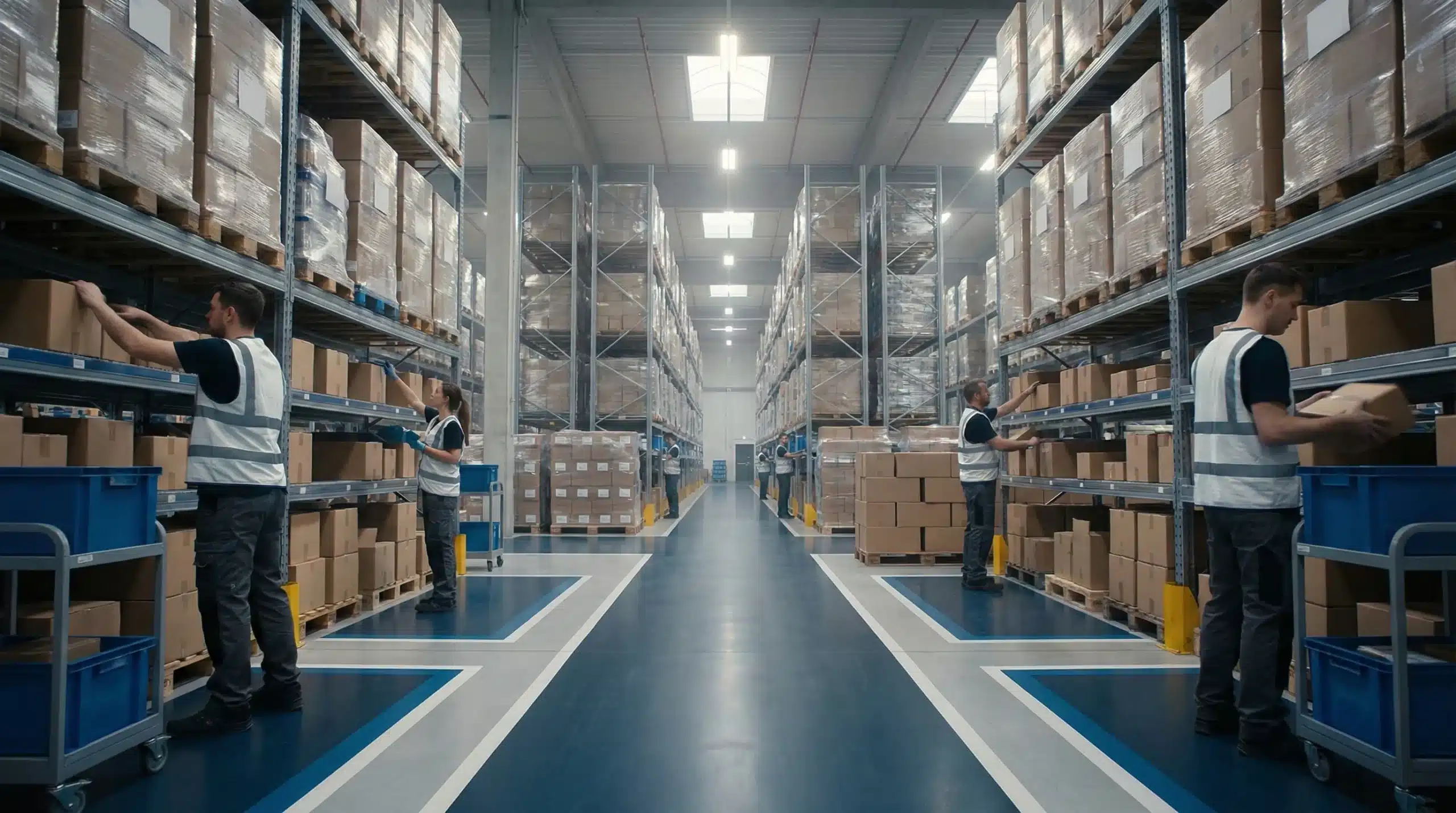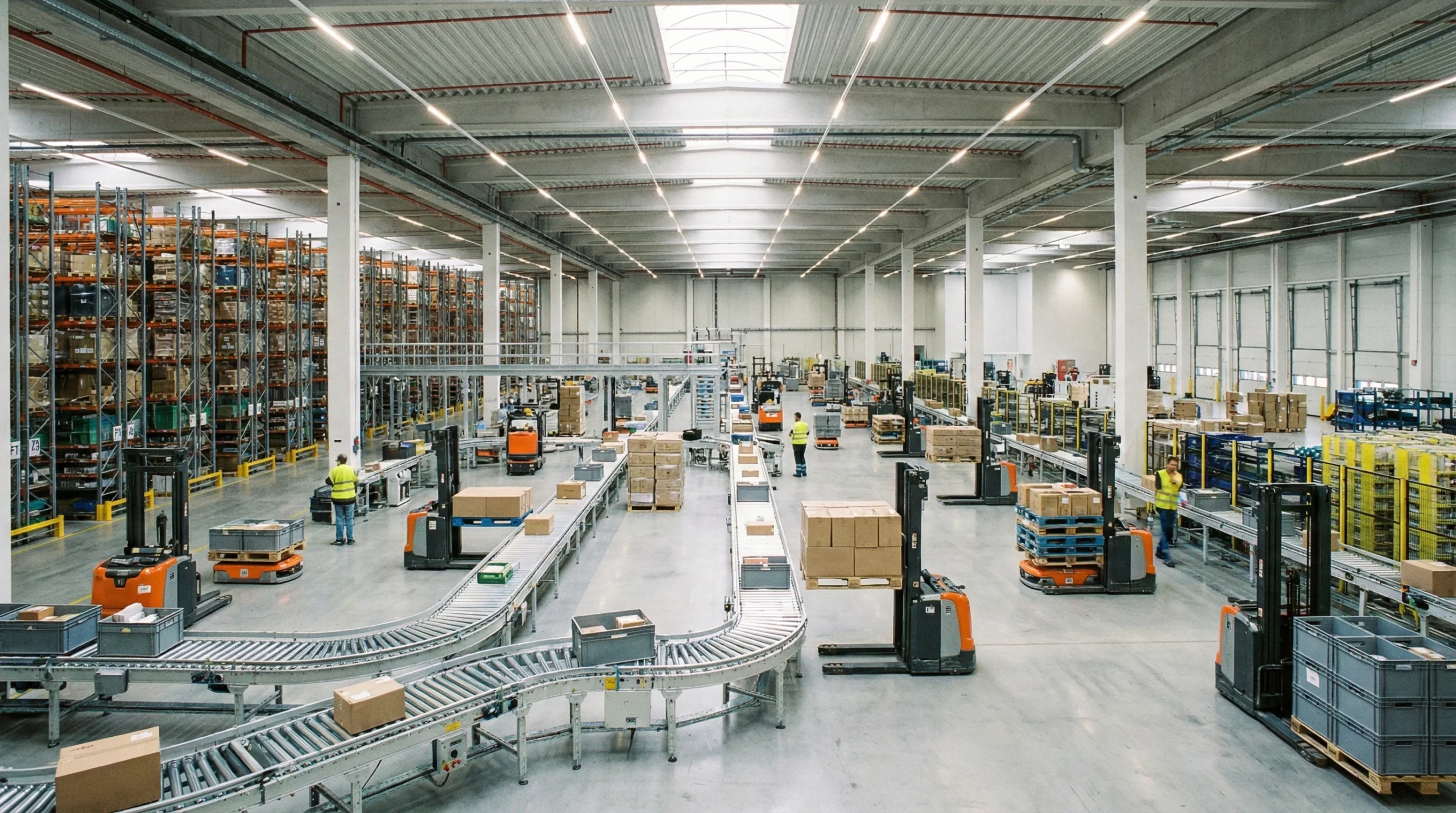In the world of manufacturing, there are many systems and tools that are designed to streamline production and improve efficiency. Two such systems that often come up in discussions are Shop Floor Control and Manufacturing Execution Systems (MES). While they may sound similar on the surface, they serve distinct purposes and have different features. Understanding the differences between Shop Floor Control and MES is essential for businesses looking to optimize their manufacturing processes.
Defining Shop Floor Control
Shop Floor Control is a system that focuses on managing and controlling the activities that take place on the shop floor. It is responsible for monitoring production processes, tracking work orders, and ensuring that operations run smoothly. Shop Floor Control acts as the interface between upper-level management and the actual production floor, providing real-time visibility into the manufacturing processes.
The Role of Shop Floor Control in Manufacturing
Shop Floor Control plays a crucial role in manufacturing by providing timely production data and facilitating better decision-making on the production floor. It allows managers and supervisors to monitor the progress of work orders, track inventory levels, and identify bottlenecks or issues that may arise during production. By having a solid understanding of what is happening on the shop floor, businesses can make informed decisions and make adjustments to optimize productivity.
Key Features of Shop Floor Control Systems
Shop Floor Control systems offer a range of features that are specifically tailored to meet the needs of manufacturing environments. These features may include:
- Real-time production monitoring
- Work order management
- Inventory tracking
- Resource allocation and scheduling
- Quality control and inspection
These features enable businesses to have better control over their production processes and ensure that everything runs smoothly on the shop floor.
Real-time production monitoring is a critical feature of Shop Floor Control systems. It allows managers and supervisors to have a live view of the production floor, providing them with up-to-date information on the status of each work order. This real-time visibility enables them to identify any issues or delays that may occur and take immediate action to address them. By having this level of insight, businesses can minimize downtime and keep production running smoothly.
Work order management is another key feature of Shop Floor Control systems. It allows businesses to efficiently manage and track the progress of each work order. Managers can assign work orders to specific machines or operators, set deadlines, and monitor the status of each task. This level of control ensures that work orders are completed on time and in the most efficient manner, helping businesses meet customer demands and maintain high levels of customer satisfaction.
Understanding Manufacturing Execution Systems (MES)
While Shop Floor Control focuses on the immediate activities on the production floor, Manufacturing Execution Systems (MES) takes a broader approach. MES is a comprehensive system that encompasses various aspects of manufacturing operations, including planning, scheduling, and execution. It serves as a central hub that connects different parts of the manufacturing process and provides a holistic view of production activities.
The Purpose of MES in Industrial Settings
The primary purpose of MES is to improve operational efficiency and visibility by integrating data from different systems and departments. It enables businesses to automate and optimize manufacturing processes, reduce manual errors, and increase productivity. MES provides detailed insights into production data, allowing businesses to identify areas for improvement and make data-driven decisions to enhance overall efficiency.
Essential Components of MES
MES comprises several essential components that work together to create a powerful manufacturing management system. These components may include:
- Production planning and scheduling
- Inventory management
- Quality management
- Data collection and analysis
- Performance monitoring and reporting
By combining these functionalities, MES provides a comprehensive solution for managing and optimizing manufacturing operations.
Let’s take a closer look at each of these essential components:
1. Production planning and scheduling
This component of MES involves creating and managing production schedules to ensure that materials, equipment, and labor are allocated efficiently. It takes into account factors such as customer demand, available resources, and production capacity to create an optimized production plan. By streamlining the planning and scheduling process, businesses can minimize downtime, reduce lead times, and meet customer demands more effectively.
2. Inventory management
Inventory management is a critical aspect of manufacturing operations, and MES plays a crucial role in optimizing it. MES tracks inventory levels in real-time, ensuring that businesses have the right amount of raw materials and finished goods at any given time. It helps prevent stockouts, reduces excess inventory, and improves overall supply chain efficiency. With accurate inventory data, businesses can make informed decisions about procurement, production, and order fulfillment.
3. Quality management
Ensuring product quality is essential for maintaining customer satisfaction and brand reputation. MES includes robust quality management functionalities that enable businesses to monitor and control the quality of their products throughout the manufacturing process. It provides real-time visibility into quality metrics, facilitates quality inspections and audits, and helps identify and address quality issues promptly. By implementing effective quality management practices, businesses can reduce defects, improve customer satisfaction, and comply with industry regulations.
4. Data collection and analysis
Data collection and analysis are at the core of MES. It collects data from various sources, such as machines, sensors, and operators, and analyzes it to gain insights into production performance. MES captures real-time data on key performance indicators (KPIs), such as cycle time, yield, and downtime, allowing businesses to monitor and measure their manufacturing operations effectively. By leveraging data analytics, businesses can identify trends, detect anomalies, and continuously improve their processes.
5. Performance monitoring and reporting
MES provides comprehensive performance monitoring and reporting capabilities that enable businesses to track and analyze their manufacturing performance. It generates real-time reports and dashboards that visualize key metrics and performance indicators, allowing managers and operators to monitor production activities and make informed decisions. Performance monitoring and reporting help businesses identify bottlenecks, measure efficiency, and implement continuous improvement initiatives.
By integrating these essential components, MES empowers businesses to optimize their manufacturing operations, improve productivity, and achieve operational excellence.
Comparing Shop Floor Control and MES
While there is some overlap in functionality between Shop Floor Control and MES, there are distinct differences between the two systems that businesses need to consider when choosing the right solution for their needs.
Similarities Between Shop Floor Control and MES
Both Shop Floor Control and MES aim to improve manufacturing operations and increase efficiency. They provide real-time visibility, enable better decision-making, and facilitate data collection and analysis. Both systems contribute to reducing errors and improving productivity on the shop floor.
Distinct Differences Between the Two Systems
Despite their similarities, there are significant differences between Shop Floor Control and MES:
- Scope: Shop Floor Control is focused on managing activities on the shop floor, while MES covers a broader range of manufacturing operations.
- Integration: Shop Floor Control typically integrates with other systems, such as Enterprise Resource Planning (ERP) software, to provide a comprehensive view of production processes. MES, on the other hand, integrates multiple systems and departments, acting as a central hub for data communication and collaboration.
- Functionality: Shop Floor Control primarily focuses on real-time monitoring, work order management, and resource allocation. MES goes beyond these functionalities by including planning, scheduling, quality management, and performance analysis.
Understanding these differences is crucial for businesses to make an informed decision and choose the system that aligns with their specific needs and goals.
Choosing Between Shop Floor Control and MES
When it comes to selecting between Shop Floor Control and MES, businesses need to consider several factors:
Factors to Consider When Selecting a System
Some of the key factors to consider when evaluating Shop Floor Control and MES solutions include:
- Business size and complexity
- Manufacturing processes and requirements
- Integration capabilities with existing systems
- Scalability and future growth potential
- Budget and cost-effectiveness
Evaluating these factors will help businesses narrow down their options and choose the system that best suits their needs.
The Impact of Your Choice on Manufacturing Efficiency
The choice between Shop Floor Control and MES can have a significant impact on manufacturing efficiency. Implementing the right system can lead to improved productivity, streamlined processes, reduced errors, and better decision-making.
The Future of Shop Floor Control and MES
As technology continues to advance, both Shop Floor Control and MES are expected to evolve and adapt to changing industry trends.
Technological Advancements and Their Influence
Advancements in areas such as Internet of Things (IoT), Artificial Intelligence (AI), and Big Data analytics are likely to have a profound impact on both Shop Floor Control and MES. These technologies can provide even greater visibility, automation, and optimization opportunities for manufacturers.
Predicted Trends in Shop Floor Control and MES
In the future, we can expect to see trends such as:
- Increased integration with IoT devices for real-time data collection
- Automation of routine tasks through AI and machine learning
- Advanced analytics for predictive maintenance and quality control
- Enhanced communication and collaboration through cloud-based platforms
Overall, the future of both Shop Floor Control and MES looks promising, with continued advancements set to revolutionize manufacturing operations.
In conclusion, understanding the differences between Shop Floor Control and MES is crucial for businesses looking to optimize their manufacturing processes. While Shop Floor Control focuses on managing activities on the shop floor, MES offers a broader range of functionalities by integrating various aspects of manufacturing operations. When choosing between the two systems, businesses should consider factors such as their specific needs, integration capabilities, and future scalability. Implementing the right system can have a significant impact on manufacturing efficiency and pave the way for future advancements in the industry.
Frequently Asked Questions
What is the main difference between shop floor control and MES?
Shop floor control focuses specifically on managing production activities and tracking work orders on the factory floor. Manufacturing Execution Systems encompass broader functionality including quality management, maintenance scheduling, and performance analytics. While shop floor control provides real-time visibility into production, MES integrates multiple manufacturing functions into a comprehensive operational platform.
When should a manufacturer choose shop floor control over MES?
Shop floor control suits manufacturers needing focused production tracking and work order management without extensive additional features. Companies with existing quality and maintenance systems may prefer standalone shop floor control for its simplicity and lower implementation cost. Smaller operations or those seeking targeted improvements often benefit from this focused approach.
What features do shop floor control and MES have in common?
Both systems provide real-time production visibility, work order tracking, and integration with ERP systems. They enable managers to monitor progress, identify bottlenecks, and make data-driven decisions. Both support barcode scanning for data collection and offer dashboards for operational monitoring. The overlap makes understanding specific needs crucial when selecting between them.
Can shop floor control and MES work together?
Yes, shop floor control can operate as a component within a larger MES implementation or integrate with MES platforms. Some manufacturers start with shop floor control and expand to full MES as their needs grow. The systems can share data and complement each other, with shop floor control handling detailed production tracking while MES manages broader operational functions.
What factors should guide the choice between shop floor control and MES?
Consider your manufacturing complexity, existing systems, budget, and growth plans. Evaluate whether you need comprehensive functionality like quality management and maintenance scheduling or focused production tracking. Assess integration requirements with current ERP and equipment. Implementation timeline and available resources also influence whether a targeted or comprehensive solution fits best.

